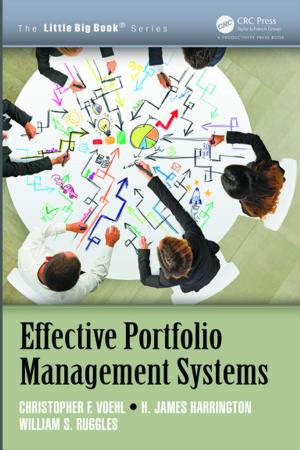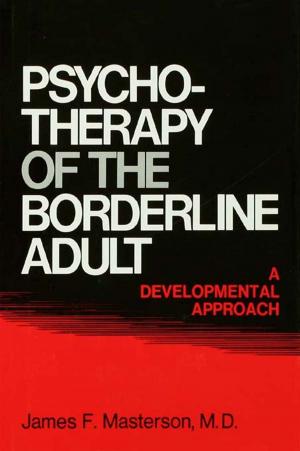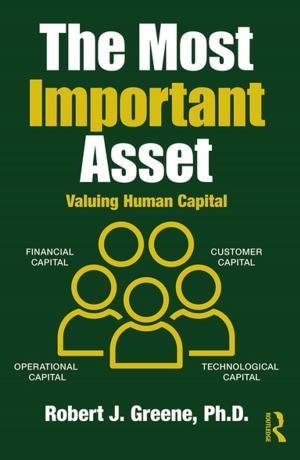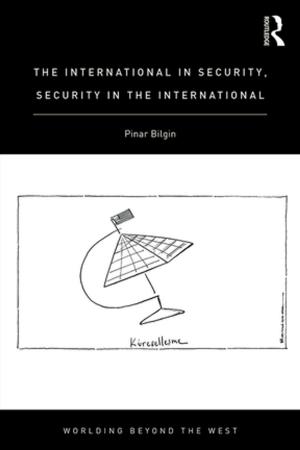Managing for Knowledge - HR's Strategic Role
Business & Finance, Industries & Professions, Information Management, Management & Leadership, Management| Author: | Christina Evans | ISBN: | 9781136384707 |
| Publisher: | Taylor and Francis | Publication: | June 25, 2012 |
| Imprint: | Routledge | Language: | English |
| Author: | Christina Evans |
| ISBN: | 9781136384707 |
| Publisher: | Taylor and Francis |
| Publication: | June 25, 2012 |
| Imprint: | Routledge |
| Language: | English |
Whilst there are many books on knowledge management there are few aimed directly at HR practitioners and the critical role that they can play in building a knowledge-centric culture.
This practical book draws on the author's own experience, as well as that of leading-edge Human Resource and Knowledge Management practitioners (including Linda Holbeche, Elizabeth Lank, and David Snowden), each of whom recognise that building a knowledge-centric culture cannot be achieved through technology alone.
It covers areas such as:
* Defining the key ingredients of a knowledge-centric culture
* The changing structures, roles and responsibilities needed to create a knowledge-centric culture
* HR's unique contribution to building a knowledge-centric culture, together with practical steps for getting started on the KM journey and for keeping the momentum going
* Tools and techniques for: opening up a dialogue about why knowledge management is crucial for business and personal success; knowledge mapping; encouraging and facilitating knowledge sharing, as well as ways of identifying key knowledge players
* How to help your organisation reframe its assumptions about learning in the knowledge economy
* How to ensure that your HR practices are knowledge aligned
Whilst there are many books on knowledge management there are few aimed directly at HR practitioners and the critical role that they can play in building a knowledge-centric culture.
This practical book draws on the author's own experience, as well as that of leading-edge Human Resource and Knowledge Management practitioners (including Linda Holbeche, Elizabeth Lank, and David Snowden), each of whom recognise that building a knowledge-centric culture cannot be achieved through technology alone.
It covers areas such as:
* Defining the key ingredients of a knowledge-centric culture
* The changing structures, roles and responsibilities needed to create a knowledge-centric culture
* HR's unique contribution to building a knowledge-centric culture, together with practical steps for getting started on the KM journey and for keeping the momentum going
* Tools and techniques for: opening up a dialogue about why knowledge management is crucial for business and personal success; knowledge mapping; encouraging and facilitating knowledge sharing, as well as ways of identifying key knowledge players
* How to help your organisation reframe its assumptions about learning in the knowledge economy
* How to ensure that your HR practices are knowledge aligned















